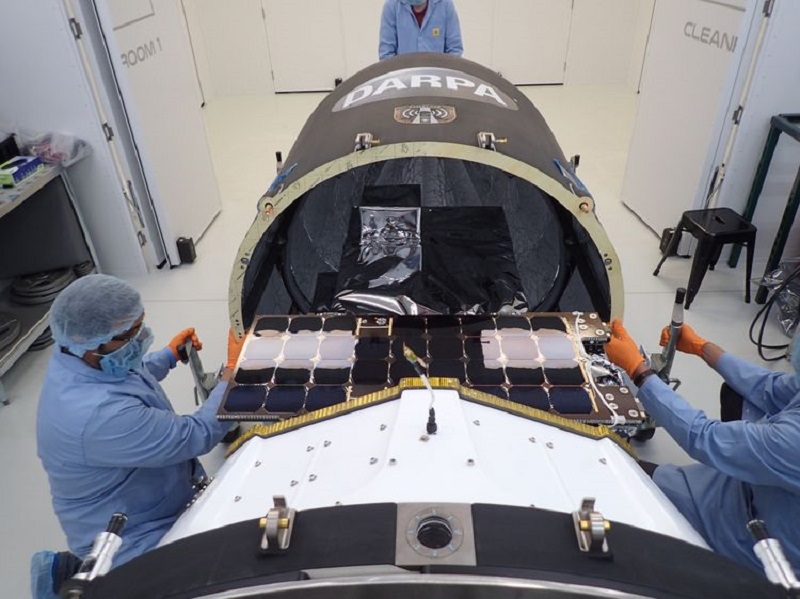Northrop Grumman demonstrates rapid space capability for DARPA

Northrop Grumman Corporation of Falls Church, VA announced on May 7 that it successfully demonstrated rapid spacecraft development for the Defense Advanced Research Project Agency (DARPA), with the Radio Frequency Risk Reduction Deployment Demonstration (R3D2), which launched on March 28, 2019.
Northrop Grumman led a unique team of commercial suppliers to deliver a 150 kg small satellite from concept to orbit in 20 months. Traditional satellites of comparable complexity typically take many years to get to this stage.
“Our team’s success with the R3D2 program is a strong proof of concept that the rapid development of future space capabilities is possible,” said Scott Stapp, vice president, resiliency and rapid prototyping, Northrop Grumman. “We look forward to continuing to lead the cultural change necessary in the industry, by partnering with the U.S. government, commercial suppliers and startups to deliver prototypes and demonstrations for critical national security missions. Taking thoughtful risks and eliminating bureaucracy allowed us to streamline our processes to achieve rapid timelines.”
The significantly accelerated timeline of R3D2 was enabled by DARPA’s approach of reducing requirements, reviews, and deliverables, while accepting greater levels of risk than is typical for an operational system. Northrop Grumman, known for its systems engineering expertise and extensive experience in leading successful space missions, utilized innovative rapid-development processes and commercial suppliers to keep schedule and risk balanced.
The Northrop Grumman-led team, included Blue Canyon Technologies, provider of the spacecraft bus, and Trident Systems, who designed and built R3D2’s software-defined radio. R3D2 was launched from the Mahia Peninsula in New Zealand by Rocket Lab.
Source: Northrop Grumman








